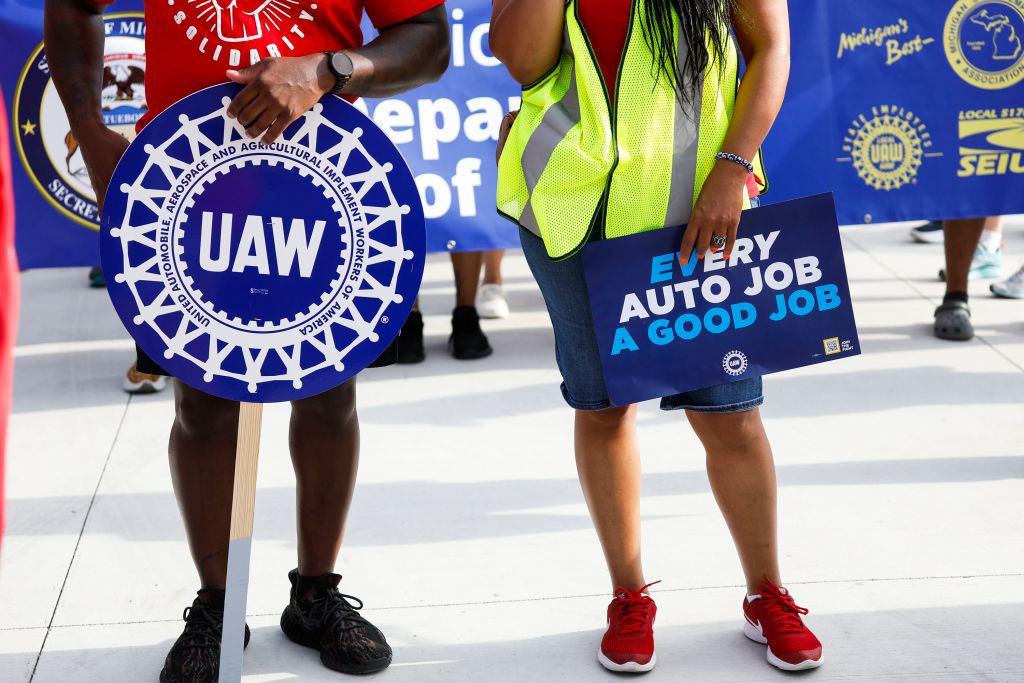
Sunah Chang is a student at Harvard Law School.
In today’s news and commentary: the EEOC publishes a final regulation implementing the Pregnant Workers Fairness Act, Volkswagen workers in Tennessee gear up for a union election, and the First Circuit revives the Whole Foods case over BLM apparel at work.
Yesterday, the EEOC issued its final regulation to implement the Pregnant Workers Fairness Act (PWFA), a law passed in December 2022 that requires employers with at least 15 employees to provide “reasonable accommodations” for workers’ limitations related to pregnancy, childbirth, or related medical conditions. The EEOC’s final regulation lays out what these reasonable accommodations may entail, listing examples like additional water and food breaks, a stool to sit on while working, time off for medical appointments, temporary reassignment, telework, among other accommodations. Most notably, the regulation also states that abortion is included in the definition of “pregnancy, childbirth, or related medical conditions” covered by the PWFA. Accordingly, under the PWFA, employers are required to allow their workers time off for abortion procedures and recovery. In response to public comments objecting to the abortion-related accommodations on religious grounds, the EEOC’s final regulation states that the EEOC will consider religious objections to providing PWFA accommodations on a case-by-case basis.
Over in Tennessee, workers in Volkswagen’s plant in Chattanooga will begin casting ballots in an election to join the UAW tomorrow. Riding on the momentum of its historic wins against the Big Three automakers, the UAW has been active in organizing workers in Chattanooga and winning supporters ahead of the election. However, some conservative politicians in Tennessee have been aggressive in voicing their anti-union sentiments. US Senator Bill Hagerty recently urged Chattanooga workers to vote no on the union, arguing that a union would harm the plant’s competitiveness with auto factories abroad. Tennessee state senator Bo Watson has also denounced the union efforts, warning that “voting against the UAW is protecting Tennessee’s values.” On the other hand, Republican Congressman Chuck Fleischman, whose district encompasses Chattanooga, has remained agnostic on the issue, stating that he wishes to “let the workers decide.”
A union victory in Tennessee is poised to make history. If the workers vote to form a union, Volkswagen Chattanooga would represent the first auto plant in the South to unionize through an election since the 1940s. It would also represent the first foreign automaker plant in the US to form a union.
Lastly, the First Circuit has reopened a case by a former Whole Foods employee who claimed that she was unlawfully fired for wearing Black Lives Matter masks to work. As Julio reported back in January, a Massachusetts district court granted summary judgment in favor of Whole Foods for all three of the workers who originally brought suit. On appeal, the First Circuit vacated the district court ruling for one of the plaintiffs, Savannah Kinzer, and affirmed Whole Foods’ summary judgment win over the other two plaintiffs. As a result of the First Circuit’s decision, Kinzer’s claims will be re-litigated in the district court.






Daily News & Commentary
Start your day with our roundup of the latest labor developments. See all
July 14
More circuits weigh in on two-step certification; Uber challengers Seattle deactivation ordinance.
July 13
APWU and USPS ratify a new contract, ICE barred from racial profiling in Los Angeles, and the fight continues over the dismantling of NIOSH
July 11
Regional director orders election without Board quorum; 9th Circuit pauses injunction on Executive Order; Driverless car legislation in Massachusetts
July 10
Wisconsin Supreme Court holds UW Health nurses are not covered by Wisconsin’s Labor Peace Act; a district judge denies the request to stay an injunction pending appeal; the NFLPA appeals an arbitration decision.
July 9
the Supreme Court allows Trump to proceed with mass firings; Secretary of Agriculture suggests Medicaid recipients replace deported migrant farmworkers; DHS ends TPS for Nicaragua and Honduras
July 8
In today’s news and commentary, Apple wins at the Fifth Circuit against the NLRB, Florida enacts a noncompete-friendly law, and complications with the No Tax on Tips in the Big Beautiful Bill. Apple won an appeal overturning a National Labor Relations Board (NLRB) decision that the company violated labor law by coercively questioning an employee […]